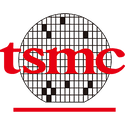
Intel Announces Deepak Patil as New Leader of GPU Division
Intel has appointed Deepak Patil as the new corporate vice president and general manager of its Accelerated Computing Systems and Graphics (AXG) group. Patil is set to succeed Raja Koduri in this leadership role - company CEO Pat Gelsinger was the first person to announce news (last month) of Koduri's departure from Intel. At the time of his leaving Team Blue, Koduri's official job title was "Executive Vice President and Chief Architect" so the wording of his successor's executive ranking is slightly different. Patil is the current chief technology and strategy officer at the Intel Data Center and AI Group, and was previously senior vice president at Dell APEX USA. He will be taking over directly from interim AXG division leader Jeff McVeigh.
The official Intel statement regarding its new leadership appointment states: "Intel will deliver competitive accelerated computing products and build scalable systems with easy-to-program software on a predictable cadence. Deepak Patil will serve as the CVP and General Manager of the Accelerated Computing Systems and Graphics (AXG) group. Deepak recently held the position of DCAI Chief Technology and Strategy Officer. Having held senior engineering leadership positions across the high-tech industry, including being a founding member of Microsoft Azure and leading Dell's APEX as-a-service business, he understands the important role that software and open ecosystems play in enabling application developers and service providers to bring innovative solutions to market, at scale."
The official Intel statement regarding its new leadership appointment states: "Intel will deliver competitive accelerated computing products and build scalable systems with easy-to-program software on a predictable cadence. Deepak Patil will serve as the CVP and General Manager of the Accelerated Computing Systems and Graphics (AXG) group. Deepak recently held the position of DCAI Chief Technology and Strategy Officer. Having held senior engineering leadership positions across the high-tech industry, including being a founding member of Microsoft Azure and leading Dell's APEX as-a-service business, he understands the important role that software and open ecosystems play in enabling application developers and service providers to bring innovative solutions to market, at scale."
































































